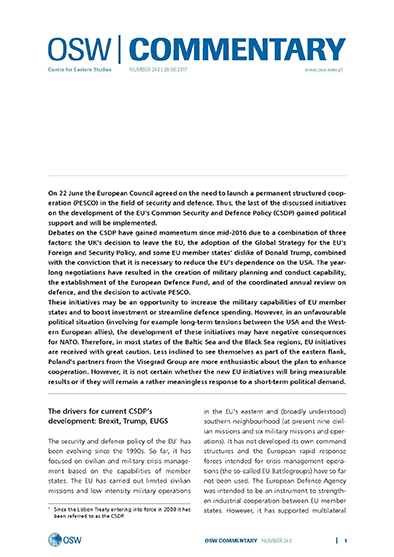One year of Ukraine’s De-communisation. A change in the historical narrative
One year of Ukraine’s De-communisation. A change in the historical narrative
Author(s): Tadeusz A. Olszański
Subject(s): Governance, Developing nations
Published by: OSW Ośrodek Studiów Wschodnich im. Marka Karpia
Keywords: Ukraine; de-communisation
Summary/Abstract: A year ago, the Parliament of Ukraine adopted four bills on the policy of national memory: on granting access to the archives of the repressive organs of the Communist totalitarian regime in the years 1917–1991, on the legal status and commemoration of Ukrainian independence fighters in the twentieth century, on the immortalisation of the victory over Nazism in the Second World War, 1939–1945, and on the condemnation of the Communist and National Socialist (Nazi) totalitarian regimes and the forbidding of their symbolism from being promoted. The laws came into force on 21 May 2015. After a year, it can be stated that only the latter two are being observed – the official narrative regarding World War II has been changed, mainly due to the activity of the Ukrainian Institute of National Remembrance (UINR), but also as a result of public statements by President Petro Poroshenko. The process of removing from public places the names and commemorations referring to the Soviet era is underway, and the fears that this may trigger serious conflicts have not proved true. From roughly a thousand placenames subject to de-communisation some two thirds have been changed so far (parliamentary bills regarding the remaining ones are awaiting approval) and most statues of Communist leaders have been removed. However, the law concerning independence fighters, which raised the most serious controversies, did not have any practical consequences. Moreover, nothing suggests that this could change. The implementation of the de-communisation laws is associated with a significant change in Ukrainian patriotic narrative: it is no longer focused on national martyrdom and it is beginning to emphasize heroic motives, which is in line with wartime needs. The fact that some of these motives are likely to trigger problems in Ukraine’s relations with Poland seems to be viewed as a marginal ‘by-product’.
Series: OSW Commentary
- Page Count: 6
- Publication Year: 2016
- Language: English
- Content File-PDF

